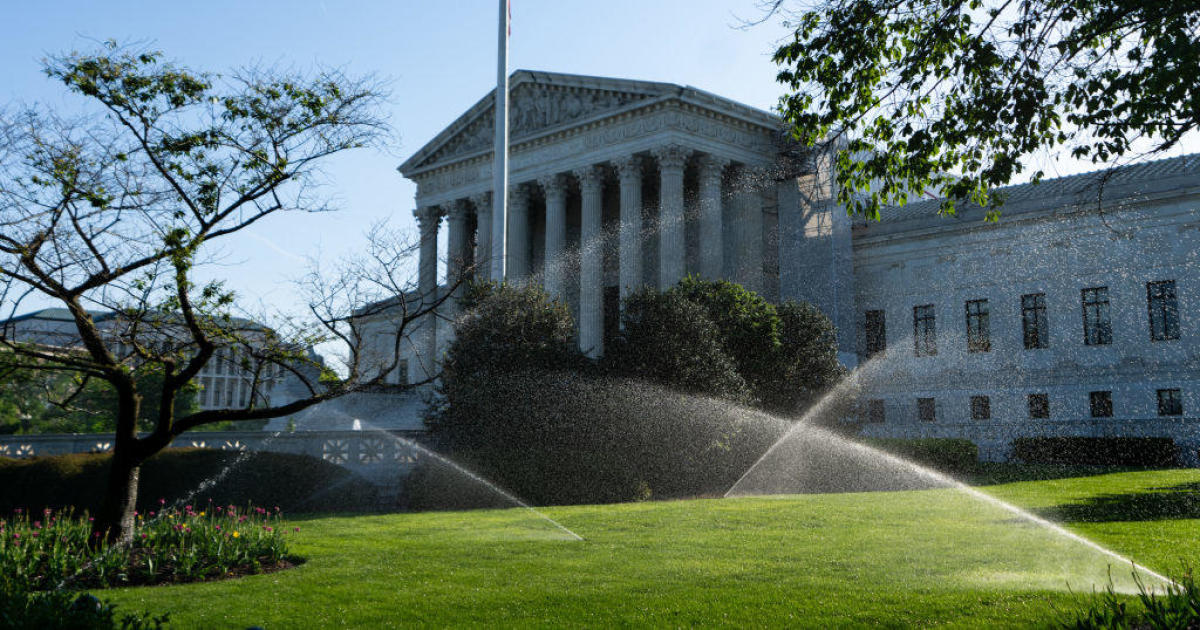Washington — Republican officials in Louisiana asked the Supreme Court on Friday to step into a long-running dispute over the state’s congressional districts after a panel of lower court judges said upcoming elections can’t be held under a recently adopted map that included a second majority-Black district.
Top lawyers for the state requested the justices provide emergency relief and halt the ruling issued by the three-judge panel late last month, which found the redistricting plan approved by Louisiana’s GOP-led legislature in January was an unconstitutional racial gerrymander.
That map, which set the lines for the state’s six congressional districts was crafted after a federal district court judge in a separate case ordered the creation of a second majority-Black district to comply with Section 2 of the Voting Rights Act. A redistricting plan drawn by state lawmakers in 2022 following the last Census consisted of five majority-White congressional districts and one majority-Black district, though roughly one-third of the state’s population is Black. The judge, U.S. District Judge Shelly Dick, said in her June 2022 decision that map likely violated the landmark voting law, and she gave state lawmakers the opportunity to come up with a new map that included an additional majority-Black congressional district.
But the new plan adopted by state lawmakers earlier this year swiftly drew a legal challenge from a group of 12 voters, who described themselves as “non-African-American” and claimed the state drew the district boundaries predominantly based on race. The voters said the state in doing so, the state “engaged in explicit, racial segregation of voters.”
A divided three-judge district court panel agreed, and in a 2-1 decision blocked the latest GOP-drawn congressional map from being used in any election after finding it to be an unconstitutional racial gerrymander. The three-judge panel set a June 4 deadline for a new map to be imposed.
A group of Black voters and civil rights groups asked the Supreme Court earlier this week to intervene, and Louisiana officials followed with their request Friday. Both groups have asked the justices to halt the panel’s injunction and remedial proceedings by May 15.
In their 43-page filing with the Supreme Court, GOP state lawyers lamented that Louisiana is left without district lines just five days before the secretary of state needs to begin implementing a congressional map for the 2024 elections.
“Louisiana’s impossible situation in this redistricting cycle would be comical if it were not so serious,” they said.
The GOP officials told the justices that the congressional map with two majority-Black districts passed by the legislature and signed by Gov. Jeff Landry, a Republican, not only took into account the lower courts’ instructions for Voting Rights Act compliance, but also was designed to achieve several political goals, namely protecting incumbent Speaker Mike Johnson, Majority Leader Steve Scalise and GOP Rep. Julia Letlow.
They said the upcoming elections in Louisiana risk being marred by confusion and chaos amid competing court orders that pit the earlier Voting Rights Act rulings, which required the adoption of a second majority-Black district, against the panel’s April decision, which found adopting a map with a second majority-Black district violated the 14th Amendment’s Equal Protection Clause.
“This absurd situation is an affront to Louisiana, its voters, and democracy itself. The madness must end,” the Louisiana officials wrote.
They warned that if the Supreme Court leaves the district court’s injunction in force, the state’s 2024 congressional elections “will be in disarray.” The Republicans said if the secretary of state does not have a congressional redistricting plan by Wednesday, “the only map that that could be feasibly implemented after May 15 (and still avoid election chaos) is the H.B. 1 map, which remains programmed in the State’s voter-registration system.” Those district lines, which were adopted in 2022, are the ones that Dick ruled likely violated the Voting Rights Act.
Beyond their request for emergency relief, Louisiana Republicans urged the Supreme Court to take up the case in its next term, which begins in October.
“Time is of the essence in ensuring that Louisiana’s 2026 elections are not hampered by redistricting-related litigation,” they said.
If the Supreme Court agrees to consider the merits of the dispute, it could lead to a significant decision involving Section 2 of the Voting Rights act and how race is used during the redistricting process. Additionally, an order allowing Louisiana to use the latest redrawn map could have ramifications for the November congressional elections, when control of the House is at stake.
